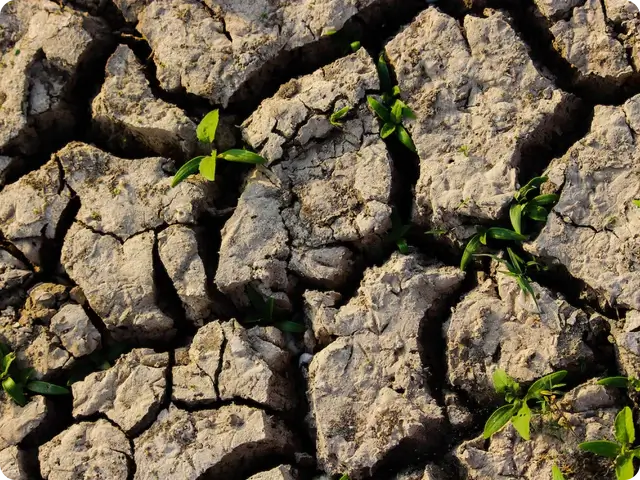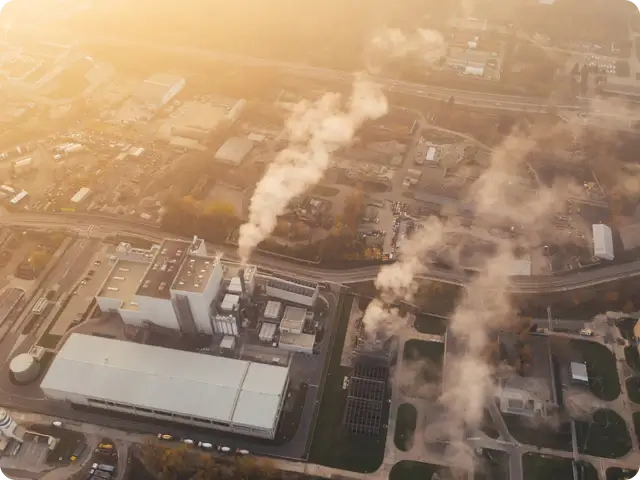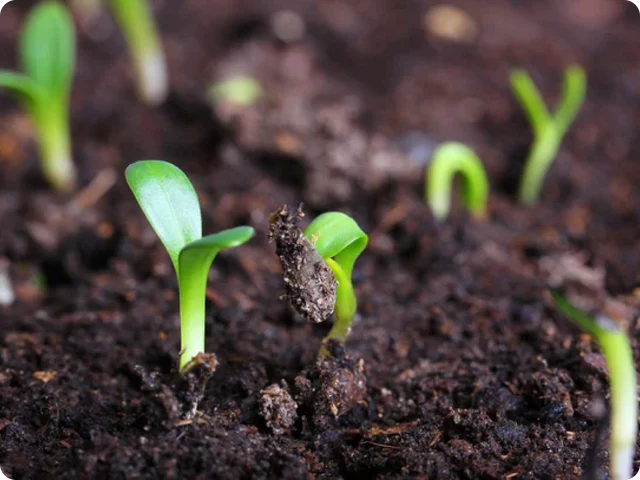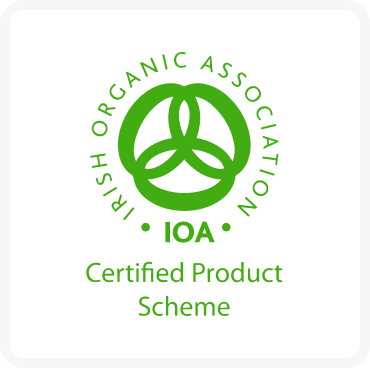When it comes to food security, we need healthy soil.
And on World Soil Day, held on 5 December 2023, it’s worth celebrating the ground beneath our feet – because soil is critical for us, our food production and for the very planet’s survival.
What is World Soil Day? A global day to focus on the importance of healthy soil and advocate for its sustainable management.
And in 2023, the theme ‘Soil and Water: a source of life’ has never been more important, given the challenges we’re all navigating around climate change.
Understanding World Soil Day 2023 Theme; The Relationship Between Soil & Water
Dry. Crumbly. Cracked. We’ve all tried to plant something in soil that’s not in great shape. On a grand scale, unhealthy soil can cause serious issues for a community or country. As can the quality and availability of our water.
Soil health + a good quality water supply will always have a symbiotic relationship – soil needs water for nutrients to be absorbed by plants. Together, they provide the foundation for food production, ecosystems and human life.
Protecting these fundamental resources is key so we can achieve sustainable and resilient agrifood systems that will continue to thrive for future generations.
But, soil and water have never been more at risk. The Geneva Environment Network confirms that climate change and human activity have left our soils degraded and put excessive pressure on our water resources. But we can do better.
The Key Messages Of World Soil Day 2023
Did you know it can take 500-1000 years to grow one inch of topsoil? Or that a huge amount of biodiversity lives in our soil? It’s the source of life. So, it’s sobering to think just how much pressure the world’s soils are currently under.
Farmers, growers, waste transformers and environmentalists are all in damage control, working towards a future where soil and water can be sustainably managed. And the good news is, there’s a lot we can do.
🌱 is a medium from which plants grow and obtain essential nutrient
🌱 acts as a natural filter for water as it infiltrates into the ground
We know that soil erosion and compaction disrupt the capacity of soil to store, drain and filter water, exacerbating the risk of flood, landslides and sand/dust storms.
Also, irrigated agriculture systems withdraw 70% of the world’s freshwater, yet only account for 20% of the croplands used for global food production.
5 ways we can move towards integrated management of soil and water
Sustainable soil management practices boost the availability of water for agriculture – and healthy soils, enriched with organic matter, play a crucial role in regulating water retention and availability. Essential to maintaining sustainable agricultural practices are:
🌱 efficient use of quality water
🌱 promoting sustainable use of fertilisers and pesticides
🌱 employing appropriate irrigation methods
🌱 improving drainage systems and controlling pumping
🌱 monitoring soil and groundwater salinity levels
If we use the wrong soil and water management practices…
… it will affect soil erosion, biodiversity and fertility as well as water quality and quantity. Why?
🌱 Water scarcity leads to the loss of soil biodiversity.
🌱 Mismanaging pesticides and fertilisers threatens soil and water quality (and poses risks to human health and ecosystems).
🌱 Poor irrigation and drainage practices are some of the main reasons for soil salinisation.
🌱 Rising sea levels contribute to land loss, increasing the risk of soil salinisation and sodification, which can negatively impact agricultural productivity.
Here’s how climate change comes in
Soil and water conservation helps the planet combat and adapt to the many changes happening in our climate, because:
🌱 Improved soil and water management improves the land's capacity to withstand extreme climate events including droughts, floods and sand/dust storms.
🌱 Integrated soil and water management practices provide essential ecosystem services, supporting life on earth and enhancing ecosystem resilience.
🌱 Healthy soils act as a carbon sink by sequestering carbon from the atmosphere, contributing to both climate change adaptation and mitigation efforts.
The History Of World Soil Day
Soil has always been revered as an incredible natural resource. This makes World Soil Day history as old as time itself.
But few have been as passionate about soil as the late King Bhmibol Adulyadej. During his rule of the kingdom of Thailand, he led a movement to create an international day to celebrate and generate awareness about soil.
Under the King’s leadership and within the framework of the Global Soil Partnership, the concept of World Soil Day was formally supported by the FAO. In 2013, the FAO Conference unanimously endorsed World Soil Day and in 2014, the U.N General Assembly designated December 5 as the first official World Soil Day.
Today, 150+ countries and 2000+ events celebrate World Soil Day to raise awareness of this vital resource.
Why World Soil Day Is Important
Why is World Soil Day celebrated? It is a unique, global opportunity to focus attention on the importance of healthy soil and to advocate for the sustainable management of soil resources.
Did you know?
🌱 95% of our food comes from soils
🌱 One cubic meter of healthy soil can retain over 250 litres of water
World Soil Day is an occasion to:
🌱 Educate and share our concerns on a global platform
🌱 Mobilise political will and resources to address the problems
🌱 Celebrate and reinforce our achievements in fostering positive change
How To Participate In World Soil Day 2023
Looking for ideas on how to celebrate World Soil Day? Here are our top tips:
🌱 Become a local champion of World Soil Day! Share the facts with fellow soil enthusiasts, neighbours, family and friends.
🌱 Let your walking do the talking - use organic gardening methods such as composting, choosing suitable plants for your site and soil and controlling pest and disease.
🌱 Advocate for the use of healthy soil. Look no further than Supersoil.
Want to know more? Supersoil’s advanced soil technology creates a highly concentrated source of organic soil matter. Supersoil restores the health and fertility of your soil for future generations – and you know you’re doing a good thing using it.





